Economy
FG, EU seek legal framework for product specifications, export expansion
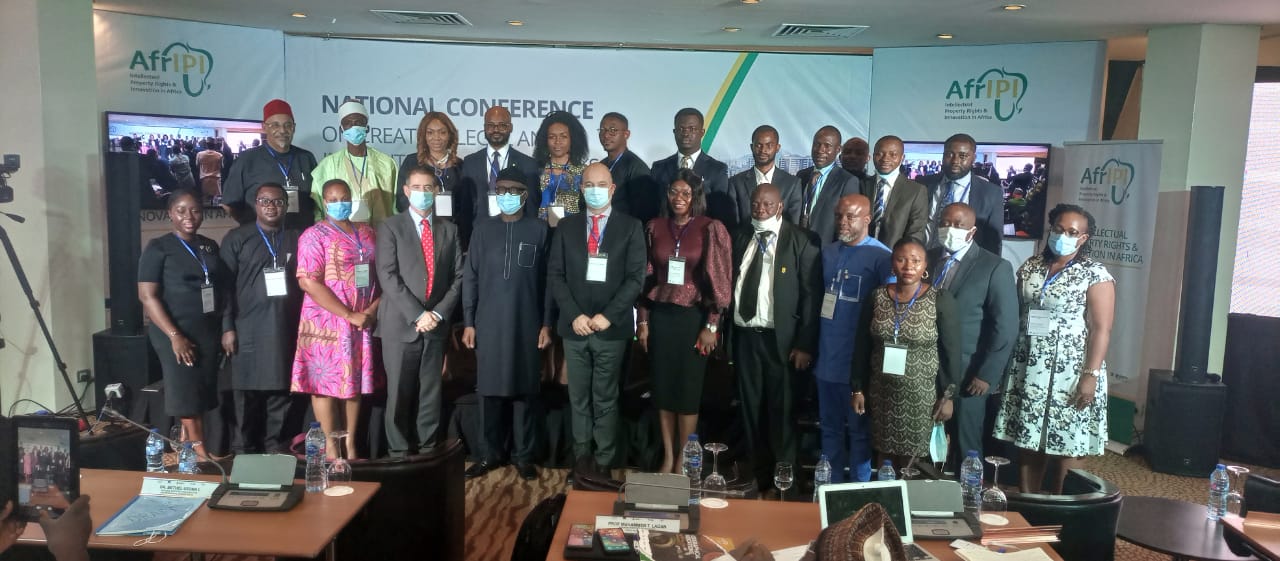

The Federal Government in collaboration with the European Union (EU) and Africa International Trade and Commerce Research (AITCR), have intensified efforts to ensure product specification.
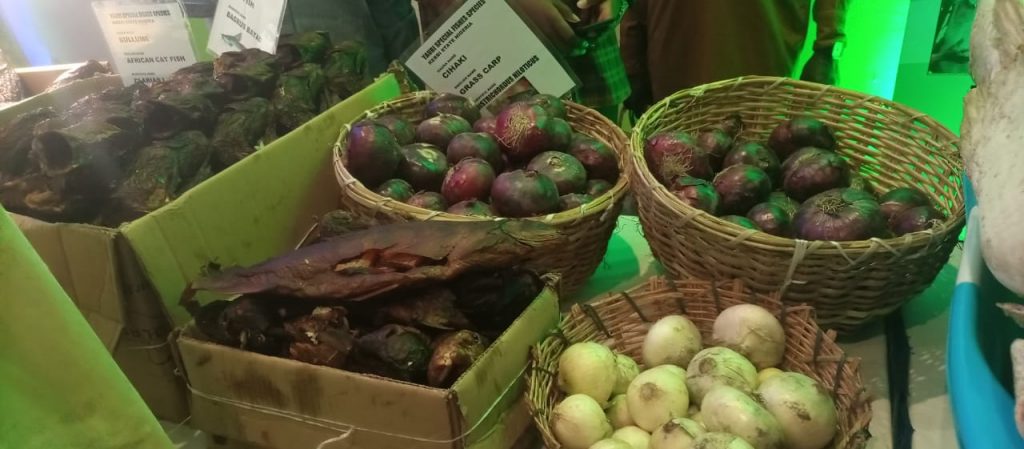
This they said is aimed at increasing the volume of exported unique products in Nigeria.
This came to the fore during the week at the National Conference on Creation of Legal and Institutional Framework for Geographical Indications, in Abuja.
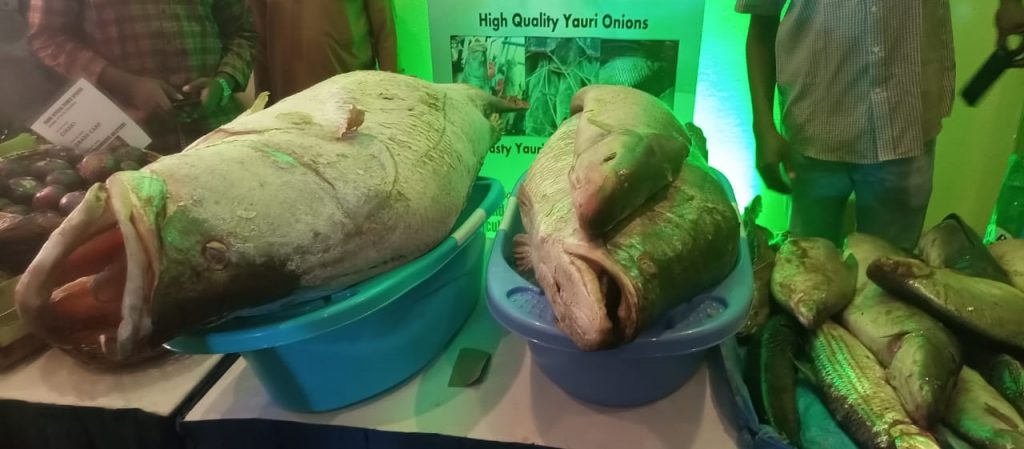
In his keynote address, Minister of Industry, Trade and Investment, Richard Otunba Adebayo commended the EU and European Union Intellectual Property Office (EUIPO) for funding the Intellectual Property Rights and Innovation in Africa (AfriPi project).
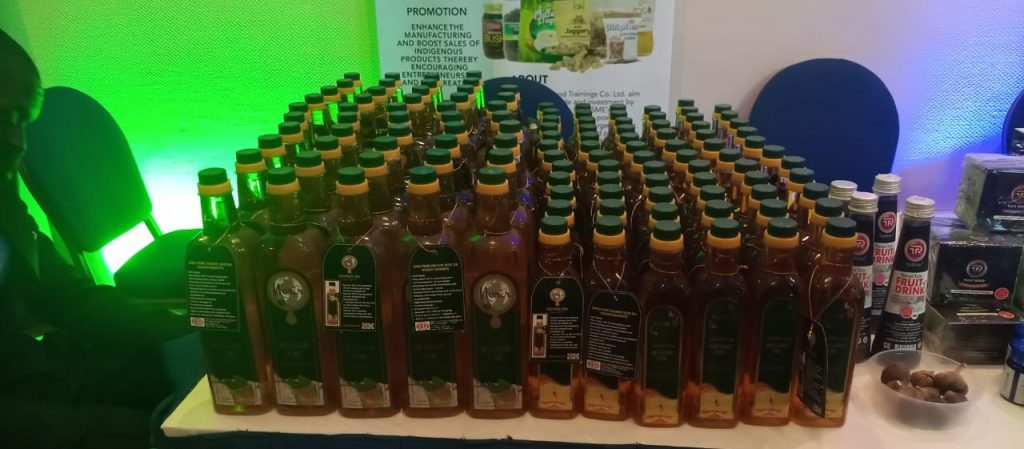
According to him, Geographical Indication is a sign used on products that have a specific geographical origin and possess qualities or a reputation that are due to that origin.
He stated that the AfriPI Project has gone a long way in supporting African companies, creators and inventors to generate value from their intellectual property.
“For many years, stakeholders from both the public and private sector in Nigeria have worked hard to promote and draw attention to geographical indications and other forms of intellectual property protection in Nigeria.
“The benefits obtainable from geographical indications in Nigeria are immense. Nigeria Is one of the most culturally diverse societies in the world.
“We can boast of a wide variety of products that can be classified as GI.
“These range from the popular Ijebu garri to Nsukka Yellow Pepper, the Sokoto Red Skin Goat and the famous Yauri Onions.
“Unfortunately, poor knowledge of geographical Indications and the absence of a specific legal framework has rendered our unique products more vulnerable to misappropriation”, he added.
The Minister mentioned that poor knowledge of the Geographical Indications (GI) and absence of a specific legal framework has continued to render Nigeria’s products more vulnerable to misappropriation.
He assured that Federal Government is committed to ensuring that Nigeria exports more finished goods, adding that GI would play a major role in supporting Nigerian producers generate greater value.
“Agri-food and drink products which have names that are protected by the European Union as geographical indications represent a sales value of about €75 billion.
“Currently over one fifth of this amount Is generated by exports that originate outside of the European Union. This presents a huge opportunity for indigenous exporters who can now capitalize on improved product reputation and the willingness of consumers to pay a premium for authentic products.
“Many potential Nigerian Gis originate in rural areas that are challenged by extreme poverty and socio-economic issues.
“Studies have established that the sales value of products associated with Gis is on average, twice that of similar products. Geographical indications provide opportunities for some of Nigeria’s most impoverished areas to participate in the exportation of non-oil products, earn fair compensation and drive much needed development.
“As all the stakeholders here are aware, geographical indication protection is not limited to agricultural produce but extends to a wide range of products induding, handicrafts, industrial products and prepackaged personal care products to name a few”, Adebayo said.
Speaking with newsmen shortly after the conference, Mr. Sand Mba-Kalu, Executive Director at Africa International Trade and Commerce Research (AITCR), noted Geographical Indication is the hope for the common man as it would help to put their names in the global market.
He reaffirmed that it will bring development and economy sustainability process to use our local products for export market and to our local communities as well as create employment in the rural areas.
Also speaking during the conference, Head of European Union Intellectual Property, Ignacio Medrano noted that they are convinced that with the protection of geographical indications, it will potentially increase the exports and tourism in Nigeria because of the quality of the products that Nigeria have.
EUIPO is supporting AFTIPI program of a legal framework for geographical indication and there are many activities trying to raise awareness about intellectual property in the African continent.
A member of the working committee, Mr. Mark Abani underscored the importance of having a legal framework.
He mentioned that members of the working committee was drwan from a wide range of experience and skills, that way they are able to develop a robust outline that would cater for all interests.
On her part, Tolu Olaloye, a member of the working committee, noted that one of the best practices that should adopted was scrutiny that would be done by a registrar, that would look at the value and origin of a product to aoid mixups.
She stated that generic name should not be allowed as a provision in the European laws do not petmit that.
The Director General for Agriculture and Rural Development for the European Commission, john Clarke, on his part said agriculture has huge potentials for export in Nigeria.
Clarke reaffirmed that with a proper framework for farmers, the country’s economy will grow rapidly due to abundant agriculture unique varieties that will be exported.
Economy
CBN Gov attributes Naira weakness to Nigerians’ appetite for Dollar, foreign goods

***Frankly tells Nigerians, the bank has no magic wand to halt Naira free fall
***’Ways and Means’ is over for good, says Cardoso
The Central Bank of Nigeria (CBN) Governor Olayemi Cardoso has attributed the weakness of the Naira to the insatiable appetite of Nigerians for the Dollar and foreign exchange.
Cardoso who gave the admonition during an interactive session with the Senate Committees on Finance, Appropriations, Banking, Insurance and other Financial Institutions, said without moderation of demands on USD, the CBN has no magic wand to stop the free fall of the Naira
He has therefore urged Nigerians, especially the elite, to reduce their appetite for dollar, consumption and usage of foreign goods and patronage of foreign schools and hospitals.
He however informed members of the committee that series of measures have been put in place by the apex bank recently, are yielding results with inflow of about $1billion into the economy.
He also indicated that the Nigerian foreign exchange market is currently facing increased demand pressures, causing a continuous decline in the value of the naira.
He told his host that apex financial institution in the country had no magic wand to hurriedly get the naira stabilised.
He said, “The Nigerian foreign exchange market is currently facing increased demand pressures, causing a continuous decline in the value of the naira.
“Factors contributing to this situation include speculative forex demand, inadequate forex supply increased capital outflows, and excess liquidity.
“To address exchange rate volatility, a comprehensive strategy has been initiated to enhance liquidity in the FX markets.
“This includes unifying FX market segments, clearing outstanding FX obligations, introducing new operational mechanisms for BDCs and IMTOs, enforcing the Net Open Position limit, Open Market Operations and adjusting the remunerable Standing Deposit Facility cap among others.
“The measures, aimed at ensuring a more market-oriented mechanism for exchange rate determination, will boost foreign exchange inflows, stabilize the exchange rate, and minimize its pass-through to domestic inflation.
“Indeed, they have already started yielding early results with significant interest from Foreign Portfolio Investors (FPIs) that have already begun to supply the much-needed foreign exchange to the economy.
“For example, upwards of $1 billion in the last few days came in to subscribe to the Nigeria Treasury Bill auction of 1 trillion Naira which saw an oversubscription earlier this week.
“Our measures aimed at improving USD supply into the Nigerian economy, has significant potential in taming the volatility of the exchange rates. However, for these measures to be sustainable, we must as a country, moderate our demand for FX.
“It is also clear that the task of stabilizing the exchange rate, while an official mandate of the CBN, would necessitate efforts beyond the Bank itself. It will also include actions by corporates and individuals to reduce our frequent demand for the dollar for business and personal needs”.
On Inflation rate , the apex bank governor assured Nigerians that it will reduce to 21.4% in 2024.
He said, “Inflationary pressures are expected to decline in 2024 due to the CBN’s inflation-targeting policy, aiming to rein in inflation to 21.4 percent at the medium term, aided by improved agricultural productivity and easing global supply chain pressures,”he said .
He attributed the current food crisis in the country to insecurity, and natural causes.
Cardoso said, “The upward trend of food inflation is primarily due to supply shocks caused by insecurity, climate-induced factors such as flood and rainfall shortage.
“In some cases, inefficient, subsistent and seasonal farming practices as well as importation bottle necks that have impacted the prices of imported food items are also critical factors.
“Anecdotal evidence indicates that recent exchange rate volatility has fuelled more foreign demands for agricultural products, especially, from neighboring countries.
“While this presents an opportunity to expand and boost agricultural output, hence creating jobs in the sector, supply constraint exacerbated demand, instigating more inflationary pressures.
“Given this backdrop, the emergency committee on food security set up by the President has been taking a number of measures and we see an end in sight to the persistent rise on food inflation.
“On our side at the CBN, we have responded with significant monetary policy tightening to reign in inflationary pressure.
“Empirical analysis has established that money supply is one of the factors fueling the current inflationary pressure.
“For instance, an analysis of the trend of the money supply spanning over nine months shows that M3 increased from N52.01 trillion in January 2023 to N68.25 trillion in November 2023 representing N16.24 trillion or 31.22 percent increase over the period.
“Increase in Net Foreign Asset (NFA) following the harmonization of exchange rates and the N3.22 trillion ways and means advances were the major factors driving the increase in money supply.”
Cardoso told the senators that the apex bank had decided to discontinue the ways and means regime.
He said, “I am pleased to note the Fiscal Authorities efforts in discontinuing ways and means advances.
“This is also in compliance with section (38) of the CBN Act (2007), the Bank is no longer at liberty to grant further ways and means advances to the Federal Government until the outstanding balance as of December 31, 2023, is fully settled.
“The Bank must strictly adhere to the law limiting advances under ways and means to 5 percent of the previous year’s revenue.
“We have also halted quasi-fiscal measures of over 10 trillion naira by the Central Bank of Nigeria under the guise of development finance interventions which hitherto contributed to flooding excess Naira and raising prices to the levels of Inflation we are grappling with today.
“The CBN’s adoption of inflation-targeting framework involves clear communication and collaboration with fiscal authorities to achieve price stability, potentially leading to lowered policy rates, stimulating investment, and creating job opportunities.
“Our MPC meeting on the 26th and 27th of February is also expected to review the situation and take further decisions on these important issues.”
Aside the CBN Governor, top government functionaries like the Ministers of Finance, Wale Edun, Budget and National Planning, Senator Atiku Bagudu, Agriculture and Food Security , Senator Abubakar Kyari, also made presentations based on questions asked by the Senators on the State of Economy.
The Minister of Finance, who is also the Coordinating Minister of the Economy, said the Federal Government was committed to end the current pains of Nigerians through a social security strategy.
Edun said, “In terms of the social protection that is uppermost at this moment and we have the social protection measures through direct payments.
“Direct payments properly done biometrically can lead to reduction in poverty.
“it is proven empirically worldwide, that is why that is an issue that is being look at now. It is our commitment to as soon as possible, resume the social investment programme and the safety net particularly at this time.
“So in a short term the commitment is to face the pains of Nigerians and to do everything that can be done to ease those pains and of course on the foreign exchange side to bring about stability.
“On Expenditure, we are looking at ensuring government expenditure is carefully spent.
“Even the President has reduced his own expenditure and so for the Medium Term let us be assured that the monetary and the fiscal policies which are being implemented are going to increase production, increase funding for the government will play its own role.
“Difficult reforms take time for the benefits to come through and our duty is to ensure in a short term we minimize he pains to the poor and the most vulnerables. ”
Minister of Agriculture and Food Security , Senator Abubakar Kyari, on his part said there is the challenge of Affordability of food, and availability in some cases.
“we have been challenged quite sometimes over COVID which had impact on Agriculture and all other sector, at the same time if you remember the flooding of 2021, and also the Naira redesign of 2022 ,2023 at the point of harvest.
“In 2022 government came up with the policy of redesigning of Naira and that really impacted on the availability of cash. In 2023 early when farmers were just preparing for planting in 2023 they had no cash anywhere.
“Access to capital for farmers is very key, in addition an exiting Government did not plan to do wet season cultivation for 2023, I don’t think there was any impact or any intervention against the 2023 cultivation and that also impacted on the quantum of harvest in 2023.
Senator Sani Musa who chairs the Senate Committee on Finance, in series of posers fired at the Ministers and CBN Governor, queried the $3.3billion collected as loan to rescue Naira , since expected positive effects are not being felt , months after .
But the Chairman of Committee on Banking, Insurance and other Financial Institutions, Senator Adetokunbo Abiru in his remarks, told the CBN governor to ensure proper synergy between Monetary and Fiscal Policies .
He specifically, urged the CBN governor to make available to the committee, audited account of the apex bank and its Budget .
Economy
Nigeria’s Poverty declines by 7% over increased exposure to internet– World Bank
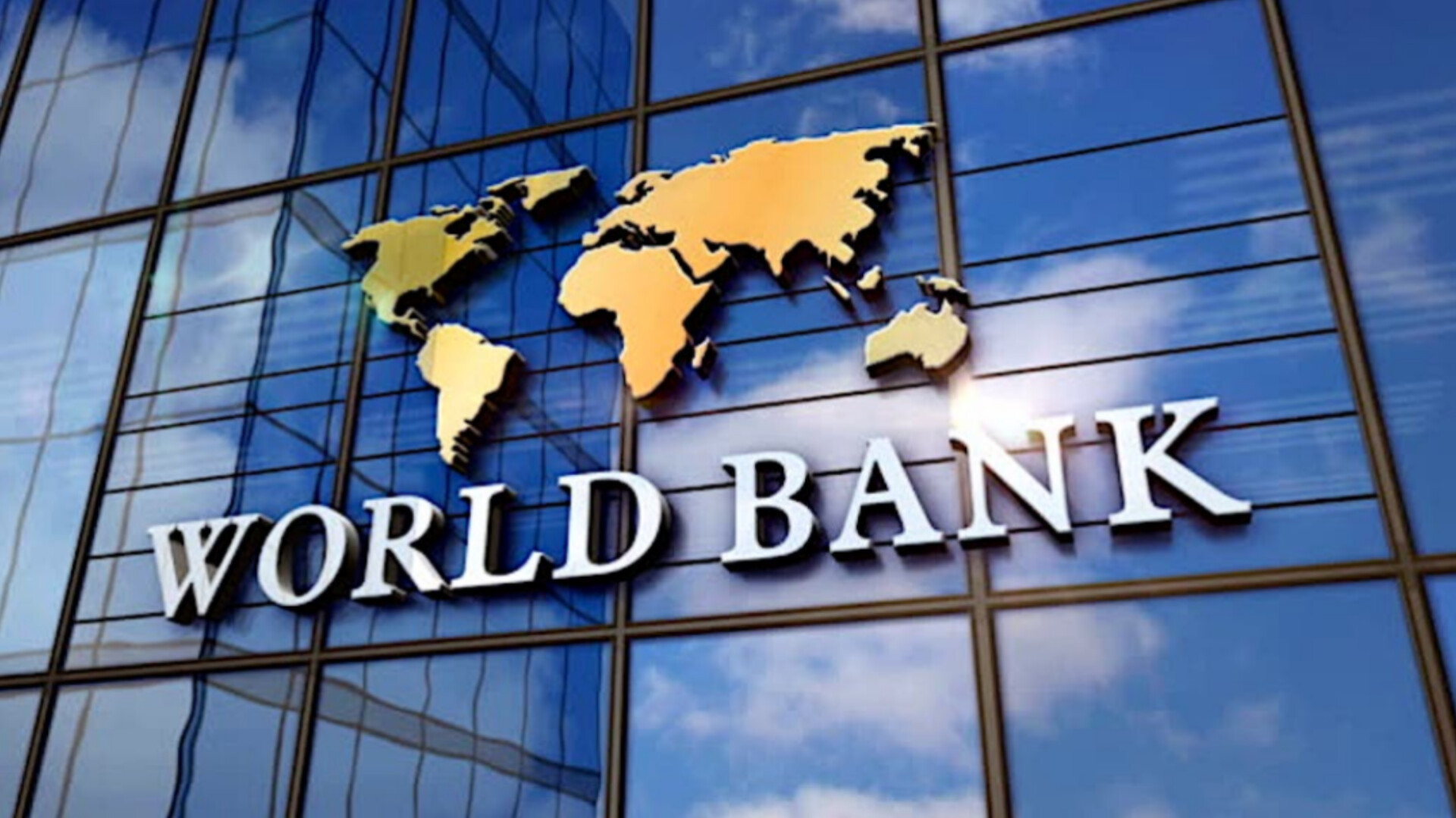
Improved access to internet coverage over the last three years gas caused a seven per cent reduction in extreme poverty in Nigeria and Tanzania, the World Bank has indicated
The disclosure came in a new brief titled, “Digital transformation drives development in Africa,” indicating that the exposure has also led to an increase of 8 per cent in labour force participation and wage employment.
The World Bank said, “In 2023, a World Bank flagship report found that in Nigeria and Tanzania, extreme poverty declined by about seven per cent after three or more years of exposure to internet coverage, while labour force participation and wage employment increased by up to eight per cent.”
The brief quoted World Bank Chief Economist for Africa, Andrew Dabalen, to have stated, “The minimal usage of mobile internet is a lost opportunity for inclusive growth in Africa. Closing the uptake gap would increase the continent’s potential to create jobs for its growing population and boost economic recovery in a highly digitalised world.”
The brief further highlighted that over the past five years (2016-2021), sub-Saharan Africa experienced an extraordinary 115 per cent increase in internet users, a change that has been instrumental in spurring economic growth, fostering innovation, and creating job opportunities.
The brief adds, “The region’s digital infrastructure coverage, access, and quality still lag other regions. At the end of 2021, while 84 per cent of people in SSA lived in areas where 3G service was available, and 63 per cent had access to 4G mobile coverage, only 22 per cent were using mobile internet services.
“The gap between coverage and usage is similarly large for broadband, with 61 per cent of people in sub-Saharan Africa living within the broadband range but not using it.”
The Minister of Communications, Innovation and Digital Economy, Dr Bosun Tijani, recently noted that the cost of data in Nigeria was still one of the cheapest in the world, but lamented that many operators are not willing to lay fibre in many parts of the countries outside the major cities because it would be unprofitable.
Economy
AfCTA: Marine and Blue Economy minister delighted as NPA hosts West, Central African Ports in Nigeria

The Minister of Marine and Blue Economy, Adegboyega Oyetola has expressed delight in the prospects of the hosting right conferred on the Nigeria Ports Authority (NPA) for the 43rd Annual Council and 18th Managing Directors’ Roundtable by the Port Management Association of West & Central Africa (PMAWCA).
The NPA won the hosting right in recognition of the remarkable improvements it demonstrated in advancing the frontiers of trade facilitation.
The gathering of 24 littoral African countries scheduled to hold from November 6 to 9 at the Lagos Continental Hotel Victoria Island Lagos is expected to be declared open by President Bola Ahmed Tinubu.
The Council has as theme: “The Role of Ports in the African Continental Free Trade Area (AfCFTA).
The annual council provides a platform for the cross-fertilisation of ideas, experiences and knowledge sharing to guide necessary policy action towards maximizing the maritime comparative advantage of the sub-region.
Speaking on Nigeria’s preparedness and expectations from the conference, the Minister said, “This gathering of maritime experts is very timely as it is coming when Nigeria is eager to provide the leadership necessary to convert our marine and blue economy potentials to actualities in a bid to provide opportunities for our growing youth population.”
He added that, “to demonstrate the premium we place on maximizing the emerging opportunities of AfCFTA which is the focal point of the conference, we have given the Nigerian Ports Authority all the support necessary for a flawless hosting.”
Responding during a media chat preparatory to the occasion at the NPA Headquarters in Marina, Managing Director, NPA, Mohammed Bello Koko, mentioned that, “our confidence in hosting this conference is in demonstration of our readiness to provide regional leadership in ports competitiveness and is inspired by the uncommon trade facilitation orientation of Mr. President who is already endorsing some of our initiatives for the maximization of our littoral assets under the auspices of the Ministry of Marine and Blue Economy.”
-

 Crime6 months ago
Crime6 months agoPolice nabs Killer of Varsity Lecturer in Niger
-

 News3 months ago
News3 months agoFCT-IRS tells socialite Aisha Achimugu not to forget to file her annual returns
-

 Appointment7 months ago
Appointment7 months agoTinubu names El-Rufai, Tope Fasua, others in New appointments
-

 News From Kogi5 months ago
News From Kogi5 months agoINEC cancells election in 67 polling units in Ogori-Magongo in Kogi
-

 News7 months ago
News7 months agoIPOB: Simon Ekpa gives reason for seperatists clamour for Biafra
-

 News From Kogi8 months ago
News From Kogi8 months agoEchocho Challenges Tribunal Judgment ordering rerun in 94 polling units
-

 Metro4 weeks ago
Metro4 weeks ago‘Listing Simon Ekpa among wanted persons by Nigeria military is rascality, intimidation’
-

 News3 months ago
News3 months agoKingmakers of Igu/ Koton-Karfe dare Bello, urge him to reverse deposition of Ohimege-Igu

